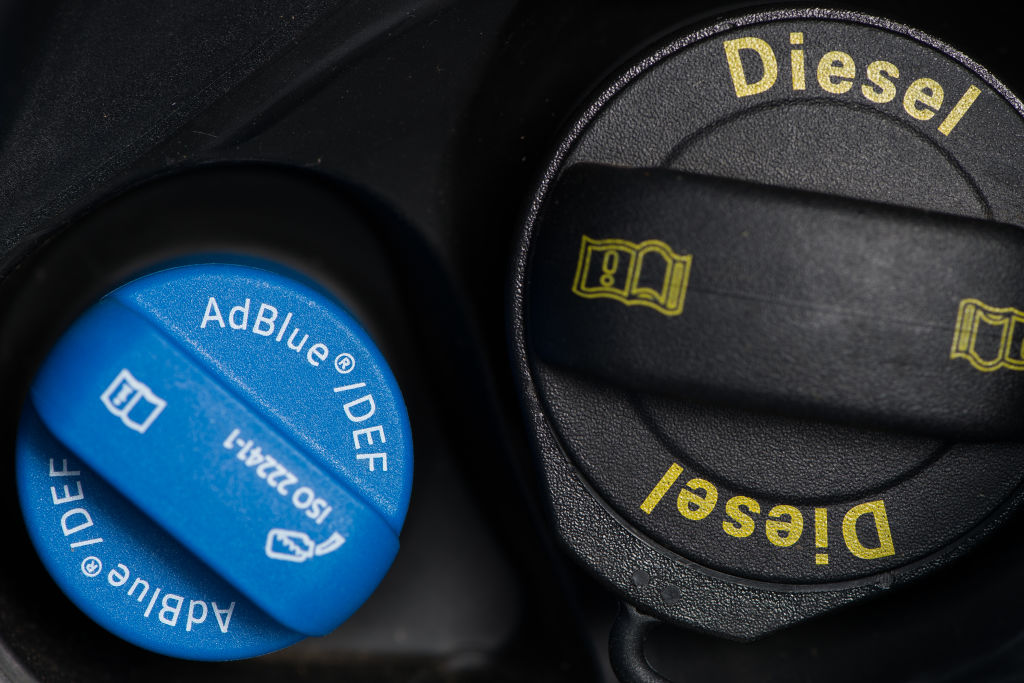AdBlue shortage highlights ongoing supply-chain vulnerabilities
Posted By Gill Savage on December 14, 2021 @ 12:30

Supply-chain challenges continue to plague Australia despite the significant focus the problem has received in recent years. While the importance of supply chains to Australia’s economic prosperity is well understood, we are yet to come to terms with them as critical elements of sovereignty and national resilience.
We are currently experiencing a painful reminder of the need to adopt a more cross-sectoral approach to supply-chain resilience. Australia imports urea from China to use in making fertiliser. Urea is also the base chemical for diesel exhaust fluid [1], better known as AdBlue, an additive used in diesel to remove exhaust pollutants. However, China is diverting [2] urea supplies into its own fertiliser production to keep fertiliser costs down and is directing AdBlue production towards addressing air-quality issues ahead of the Beijing Winter Olympics.
The transport sector in Australia has warned [2] that the AdBlue supply is likely to diminish by February; the price of diesel has already risen 10 cents per litre [2] in recent weeks. While AdBlue is an exhaust additive that doesn’t affect [3] engine performance, many post-2010 vehicles will be forced into ‘limp’ mode if a fault is detected, effectively making them undriveable. Shortages of AdBlue will not only impact [4] the transport sector through increased costs, but will have flow-on impacts for food production, availability and cost, as well as air quality. The impacts are expected to be felt across all supply chains.
It’s interesting to ponder for a moment whether a shortage of AdBlue could have been avoided. The fertiliser company Incitec Pivot has announced [5] it will cease manufacturing urea-based fertiliser at its Brisbane facility by December 2022, stating that it couldn’t get access to a long-term gas supply from Australian producers. Could maintaining this facility have been the solution to the shortage of urea for AdBlue and fertiliser production?
These issues represent a convergence of factors that have a limited effect in isolation but, when combined, significantly impact sovereignty and national resilience.
The Productivity Commission’s July report on vulnerable supply chains [6], while not specifically mentioning urea, noted that ‘even though Australian industry might rely on imports of fertiliser and pesticides from China, the global trade data suggests that Australia could source these products elsewhere if trade with China was disrupted’. The report added the caveat that further expert advice was needed to ‘determine whether any of the inputs identified in this analysis are critical to production and whether critical inputs, such as fertilisers, are susceptible to other potential vulnerabilities’. It can be good to have a bet each way, but this one wasn’t helpful.
We faced similar challenges to those posed by the AdBlue shortage in 2020 with the availability of Covid-19-safe masks. The story is a little more complex in that it wasn’t the masks that were in short supply but rather an input [6] into their manufacture. Non-woven polypropylene, a component of the masks, is produced by only a few firms worldwide and requires a high initial investment, thereby establishing a barrier to market entry and limiting the speed with which quick alternative production can be found.
The Khapra beetle, a destructive exotic pest that poses a major threat [7] to Australia’s grain, dried fruit, rice and nut industries, provides another example. Last year [8], the beetles were found in a consignment of refrigerators that was imported in a single shipping container from Thailand. The fridges went to sites in New South Wales and the Australian Capital Territory. A second, more recent detection was in a consignment of highchairs imported from Italy. Tracing, inspection and treatment of the highchairs that were distributed to retail outlets and sold across Australia is still occurring.
Serious detective work by the federal agriculture department found that a shortage of shipping containers resulted in recycling across different commodities from different continents that, coupled with health bans on the use of chlorine and bromide to clean containers, led to cross-contamination.
These are examples of supply chains with single points of failure. It’s likely that others will continue to surface and many more will remain undetected.
Understanding the indicators of vulnerability and resilience from geopolitical, supply-chain, demand and dependency perspectives is key.
It is the confluence of these indicators that results in failure. It’s not enough to map sectoral, or even national, supply chains. We first need to appreciate the cross-sectoral characteristics of a ‘vulnerable’ supply chain. This starts with a deeper understanding of what a critical supply chain means beyond the Australian economy and as an enabler of resilience and national security.
We can’t wait for another problem to arise or divert resources into looking for the next issue. It starts with understanding what we value and what characteristics correlate to the vulnerabilities of those things we value.
Would we have intervened to support local investment if we understood the connection between AdBlue and gas supply to a fertiliser plant? Pre-Covid, the answer would likely have been no. Post-Covid, it should be yes.
Article printed from The Strategist: https://www.aspistrategist.org.au
URL to article: https://www.aspistrategist.org.au/adblue-shortage-highlights-ongoing-supply-chain-vulnerabilities/
URLs in this post:
[1] diesel exhaust fluid: https://www.drive.com.au/caradvice/what-is-diesel-exhaust-fluid-adblue-and-how-does-it-work/
[2] diverting: https://www.abc.net.au/news/2021-12-03/diesel-crisis-adblue-shortage-supply-china/100673482
[3] doesn’t affect: http://www.mercedesmedic.com/mercedes-adblue-problems/
[4] impact: https://www.news.com.au/finance/business/travel/urea-shortage-puts-supply-chain-under-extreme-pressure-with-supplies-at-risk-and-prices-to-soar/news-story/7808eb00f813945293cbab5539585ea4
[5] announced: https://www.incitecpivot.com.au/about-us/about-incitec-pivot-limited/media/gibson-island-manufacturing-operations-to-cease-at-end-of-2022
[6] vulnerable supply chains: https://www.pc.gov.au/inquiries/completed/supply-chains/report/supply-chains.pdf
[7] major threat: https://www.business.qld.gov.au/industries/farms-fishing-forestry/agriculture/crop-growing/priority-pest-disease/khapra-beetle
[8] Last year: https://www.dpi.nsw.gov.au/biosecurity/plant/insect-pests-and-plant-diseases/khapra
Click here to print.